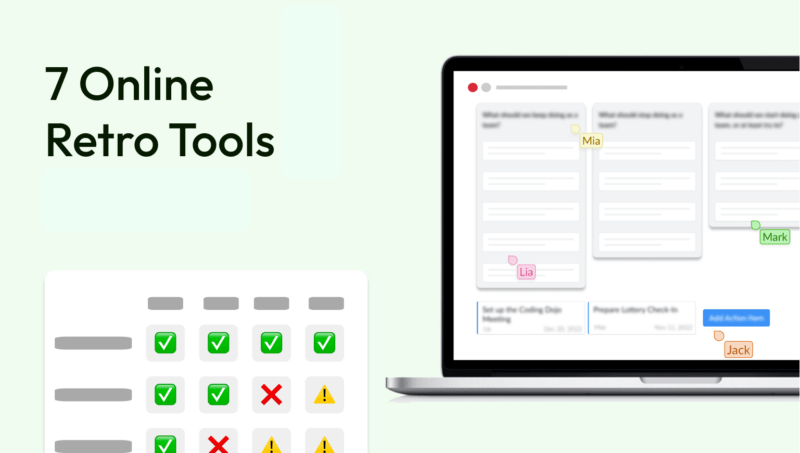Why salary in companies turn into chaos
In the course of our careers prior to founding Echometer, we saw many examples where discussions about the salary became the productivity blocker #1 in teams . The discussions are highly emotional and can even break up an otherwise great team.
In businesses remuneration is often a "historically grown" problem. Employees receive regular salary increases over the years. Depending on how well the company is doing, the increases may be larger or smaller. At the same time, it is practically impossible to reduce a salary level once it has been reached – even if responsibility and / or performance would suggest to do so.
Especially for young colleagues at the beginning of their careers, overpaid employees (measured by their performance) become the benchmark. Measured by their contribution, the young colleagues feel underpaid. To avoid these conflicts, many HR departments (not all, of course) try to make a big secret about salaries . If disproportionate differences in wages do come to light, the employees' trust is lost and the downward spiral continues.
This injustice is also evident in the gender pay gap. Still studies show repeatedly, that we as a society are still unable to implement fair remuneration regardless of gender.
In short: If you are not careful, company compensation can quickly become chaos.
#NewPay & #EqualPay - we want to fix compensation
For us at Echometer it was clear that we wanted to avoid such dead ends right from the start. Inspired by transparent compensation models such as "Newpay" at Einhorn in Berlin, we began to delve deeper into the subject.
In practice in established companies, the desires and reservations of those who benefit from non-transparent salaries are often the reason why there is no systematic improvement. We found that we were in the comfortable position that the remuneration between the three of us founders and the first employees was transparent from the start.
Maintaining a transparent remuneration model seemed to us the best way to guarantee fair remuneration in the long term and at the same time guarantee #EqualPay.
Crafting our own salary model
After researching how companies like Einhorn, Buffer and others set up their compensation models, we created the first drafts of what a remuneration model could look like. Criteria to be considered for a remuneration model are, for example:
- How high should the base salary be, in other words, the internal minimum wage, so to speak? Should this basic salary be the same for everyone, or different for each role?
- How is experience included in the salary? In other words, a bonus for work experience, internships, studies and training?
- How should social circumstances be taken into account? It was particularly important to us to include children or needy family members in the salary.
- How is individual performance considered? Do we actually need individual target agreements, or is it enough to define team / company goals? Also note: What weight should these be given in the salary?
- If we opt for individual bonuses: How do we measure we the individual performance? Should a self or peer evaluation be included as a component here?
- How should the (typical startup) Employee participation (VSOP) look like? Should we wait for the upcoming (and hopefully improved) #ESOPasap reform (see discussion Olaf Scholz and the Federal Association of German Startups)?
We discussed these variables openly with the team and found out what was more important and less important to them. Of course as founders we had to consider the issue from a business perspective as well :
- What average salary can we actually afford financially?
- Is the salary model attractive enough to hire top talent as well as experienced employees?
- What kind of VSOP are we ready to share with employees?
- Should the founders be included in the salary model?
One of the results of the discussion was for example that we initially only define team goals and not individual goals. In this way, we were able to design an easy-to-understand and easy-to-maintain salary model and in doing so, reconciled most of the wishes of our team and our business needs relatively well. The result looks like this:
The transparent salary model at Echometer
The components
In summary, the remuneration for Echometer consists of the following components:
- Basic monthly salary: This is €3,000 for “software developers” and €2,400 for all other roles. By making the distinction, we are accommodating the different market salaries in the field of software development. If defined sales milestones are reached, this basic salary will automatically increase in stages by €250 each.
- Additional fixed elements that are added to the basic monthly salary individually for each person:
- Experience bonus: Here we have a point system, which provides a point for every completed universitary degree and every year of relevant professional experience. From the second point onwards there is + 100 € per point, the bonus is capped at 10 points.
- Social bonus: + € 200 for each family member in need of care in your own household as well as each child requiring maintenance, capped at a total of four.
- Loyalty bonus: + € 100 for each year of employment at Echometer
- Annual bonus for achieving team goals: In the first step, we decided on sales targets for the team goals, which are the same for all employees. With 100% target achievement, the bonus for software developers is an additional 10% on the annual salary, for all other roles 25% on the annual salary. Target achievement is capped at 150%.
* 👋 Hi, short note: In the meantime, we have adjusted the weight of some components in our salary model effective January 2022 (see below).
Employee participation via VSOP
Employee participation via the VSOP is currently not automatic and is only agreed individually after one year of employment.
Relevant criteria for the allocation are (1) individual professional contribution, (2) individual contribution to team building & mentoring (3) individual contribution to shaping the strategic orientation.
Regular salary increases included
The sales milestones, the loyalty bonus and the experience bonus, which also increases during employment, have a side effect that is important to us: The salaries automatically climb with the growth of Echometer and length of service.
So there is no need for constant negotiation, as the mechanism provides for salary increases from the start.
Salary model also applies to founders
It should also be mentioned that the salary model applies to all employees. As founders and employed managing directors, we also apply the model to ourselves accordingly.
The remuneration of working students, freelancers and trainees is not part of the salary model. For part-time employees, all components are taken into account pro rata, based on a working week of 40 hours. The division of working hours as well as the place of work (see our Article on "Remote First") can be individually designed.
Salary calculator to do the math yourself
We are happy to link the exact wording of the Salary model in German & English (minimal blackening of our sales targets) and a Google Sheet Salary Calculator, with which you can calculate your hypothetical salary at Echometer.
Final thoughts on transparent salary models
We admire the courage of other startups to make their salary model transparent and thus possibly raise critical questions. Of course, we also know that our compensation system is not perfect and that there will be justified criticism.
Nevertheless, we are convinced that a salary transparent system is the right way to go. Similar to creating “open source” projects in software development transparent salary models an open discourse and the opportunity to continuously question your own perspectives and thus achieve better results. The transparency creates added social value for both employees and other companies and startups who want to improve their salary models.
Fortunately, in our case, the transparent compensation model has already proven in practice. Many applicants respond positively to our approach. Even if there is of course a disadvantage: The model shows applicants that there is no room for negotiation when it comes to remuneration. But we are happy to accept that (as of today) because applicants know in return that they will be treated fairly and that everyone else will be remunerated on the same terms.
What is your opinion? We look forward to suggestions, critical questions & co.
Got excited? Then maybe it's worth taking a look our vacancies at Echometer!
Our update for January 2022
In 2021 we were able to gain some experience with the transparent salary model. As an interim conclusion one can say: It has proven itself for us.
With increasing growth and the corresponding need for top talent, we have made the following adjustments in consultation with the team for 2022 to make our remuneration even more attractive:
- Experience points: Each point now gives +150€ and we count from the first point (before: +100€ from the second point)
- Loyalty bonus +200€ (previously +100€)
- We have shortened the annual team goals into quarterly team goals. In the startup environment, a year is simply too long and quarterly goals seem much more tangible and therefore more motivating to us.
So in 2022 we will basically be using the same salary model, only better. Here you can find it updated google sheet of the salary model to calculate for yourself 🙂








